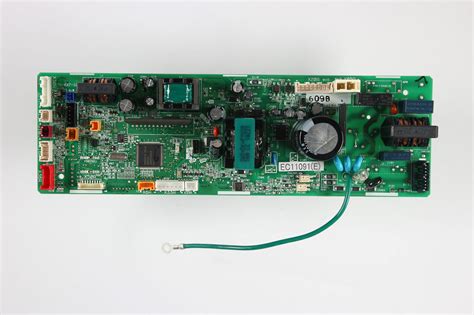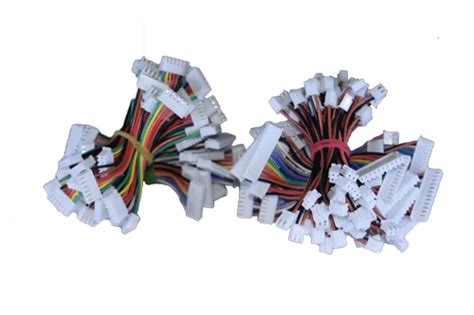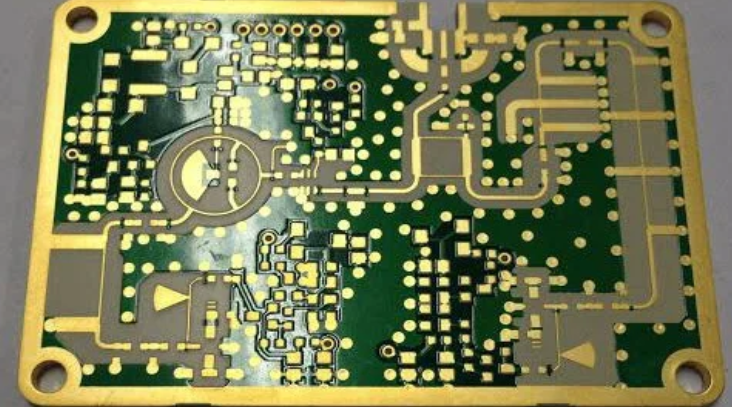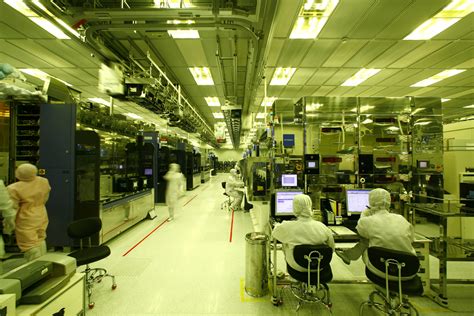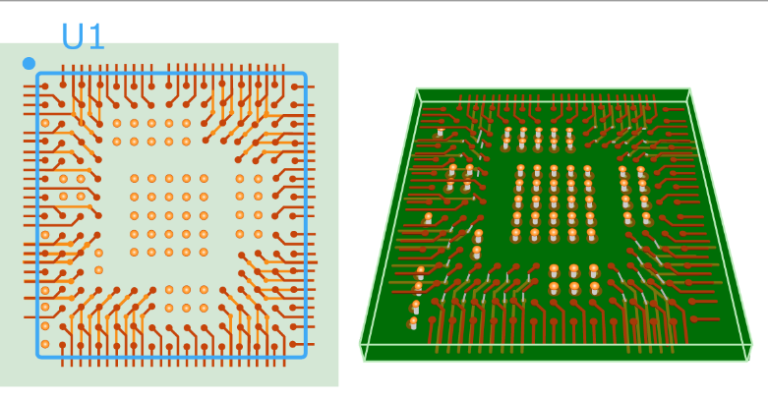Enhancing Productivity with Tailored Turnkey Assembly Services
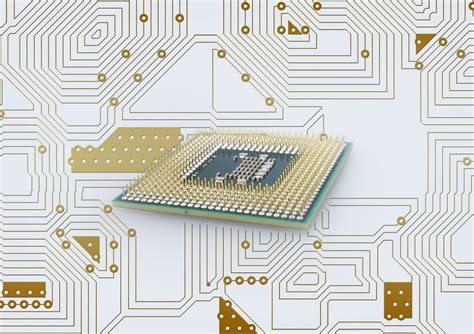
Key Takeaways
In the evolving landscape of manufacturing, turnkey assembly services play a pivotal role in enhancing operational efficiency and productivity. These services offer comprehensive solutions that address the unique needs of businesses, particularly those engaged in pcb assembly and pcba processes. By focusing on tailored approaches, companies can streamline their operations and reduce time-to-market significantly. The integration of innovative technologies in turnkey assemblies not only simplifies production workflows but also ensures higher quality outputs. Moreover, businesses benefit from customized solutions that adapt to specific project requirements, thereby optimally utilizing resources and minimizing waste. As firms face continual pressure to outperform competitors, investing in tailored turnkey assembly services becomes essential for driving success and maximizing ROI. Ultimately, understanding these advantages leads to better strategic decisions that position companies at the forefront of their industries.
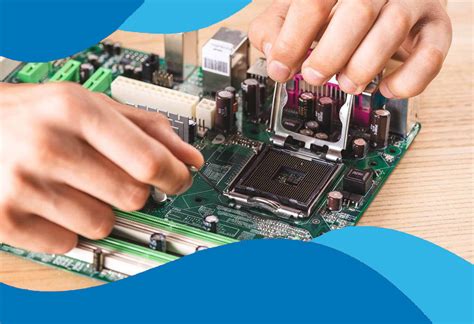
Understanding Turnkey Assembly Services: An Overview
Turnkey assembly services are a comprehensive solution that provides businesses with a complete set of assembly capabilities, particularly valuable in the fields of PCB assembly and PCBA. These services are designed to take a project from initial concept through to finished product, allowing companies to focus on their core competencies while benefiting from specialized expertise. The essence of turnkey solutions lies in their ability to eliminate the complexities involved in assembly operations. By consolidating various processes—such as sourcing components, assembly, and testing—into a single service offering, companies can significantly reduce lead times and improve quality control.
Furthermore, tailored turnkey assembly services adapt to the unique requirements of different industries. For instance, in high-tech sectors where precision is paramount, customized solutions ensure that every aspect of PCBA meets stringent quality standards. This not only helps in achieving higher efficiency but also fosters innovation by enabling organizations to integrate advanced technologies seamlessly.
"Utilizing tailored turnkey assembly services can often result in a smoother operational flow and enhanced productivity."
Moreover, these services contribute to cost savings by minimizing waste and improving resource allocation. By outsourcing assembly processes to experts who specialize in PCB assembly, businesses can also gain insights into the latest industry trends and best practices that further enhance productivity.
| Key Benefits | Detail |
|---|---|
| Efficiency Gains | Streamlined processing leads to faster turnaround. |
| Cost Savings | Reduced overhead from outsourcing specialized tasks. |
| Quality Assurance | Enhanced testing protocols ensuring fewer defects. |
| Flexibility | Solutions tailored to meet specific project needs. |
In summary, understanding the dynamics of turnkey assembly services sheds light on their pivotal role in not only simplifying complex operations but also driving measurable results for organizations operating within competitive landscapes.
The Benefits of Tailored Solutions in Assembly Operations
In the rapidly evolving landscape of manufacturing, tailored turnkey assembly services have emerged as a pivotal strategy for enhancing operational efficiency and productivity. By offering personalized solutions that cater to the specific needs of businesses, these services allow for a more adaptive approach to pcb assembly and pcba processes. One of the key advantages is the optimization of workflow and resource allocation, which enables companies to streamline their operations effectively. Customized assembly solutions streamline production timelines and minimize downtime by ensuring that each component is assembled in accordance with the precise requirements of the project. Additionally, businesses can achieve significant cost reductions by avoiding unnecessary expenditures associated with traditional one-size-fits-all approaches. This flexibility not only helps in responding swiftly to market demands but also fosters innovation in processes and product development. By tapping into specialized expertise, organizations can enhance quality control measures throughout each stage of production, ultimately leading to a more robust and reliable final product. Thus, leveraging tailored services in assembly operations not only improves efficiency but also positions companies for sustainable success in an increasingly competitive marketplace.
Streamlining Processes: How Turnkey Services Enhance Efficiency
In the realm of modern manufacturing, turnkey assembly services play a pivotal role in optimizing operations and delivering exceptional outcomes. These services are particularly beneficial for industries relying heavily on pcb assembly and pcba, as they allow for a comprehensive approach to production that minimizes delays and maximizes output. By embracing tailored turnkey solutions, companies can address their unique challenges and requirements, leading to seamless integration of processes that enhance overall efficiency.
When businesses opt for these specialized services, they gain access to innovative technologies that facilitate precision and quality in assembly. This results in reduced waste, shorter lead times, and improved resource management. Moreover, by leveraging the expertise of professionals in the field, companies can focus on their core competencies while outsourcing complex assembly tasks to specialists. The collaboration nurtured through turnkey services thus not only elevates productivity but also fosters a culture of continuous improvement. Overall, the strategic implementation of tailored turnkey assembly solutions is beneficial for organizations aiming to thrive in a competitive landscape by drastically improving their operational efficiency and effectiveness in delivering high-quality products.

Innovative Technologies in Turnkey Assembly: A Competitive Edge
In today’s dynamic manufacturing landscape, innovative technologies in turnkey assembly services play a pivotal role in providing a competitive edge. By integrating advanced automation and robotics into pcb assembly processes, companies can significantly reduce production times and minimize errors. The adoption of machine learning and data analytics further enhances customization capabilities, allowing for more efficient adjustments to the pcba production lines according to real-time demands. These technologies not only optimize the operations but also ensure high-quality outputs by facilitating better quality control mechanisms. For instance, implementing automated inspection systems can identify issues earlier in the assembly process, which reduces waste and improves overall efficiency. Additionally, leveraging IoT (Internet of Things) technology allows for seamless communication between various assembly components, fostering a more cohesive operational environment. This confluence of technology ensures that tailored solutions under the umbrella of turnkey assembly services meet specific client needs while enhancing productivity in an increasingly competitive market. Thus, staying ahead in this field requires continuous investment in such innovative tools and practices that redefine productivity standards within the industry.
Case Studies: Successful Implementation of Tailored Services
In various sectors, tailored turnkey assembly services have consistently demonstrated their capacity to transform operations, as evidenced by several compelling case studies. One notable example involves a company engaged in PCB assembly for consumer electronics. By adopting a customized solution that integrated both pcba (Printed Circuit Board Assembly) and process optimization strategies, this organization achieved a significant reduction in production time and errors. The incorporation of advanced automation technologies enabled the assembly team to streamline tasks while ensuring that quality control measures were rigorously maintained.
Another illustrative case involved a manufacturer specializing in medical devices. By leveraging tailored assembly services, they successfully navigated the complexities associated with regulations and stringent quality requirements common in the healthcare industry. The provider offered a specific configuration that not only aligned with the client’s operational needs but also facilitated rapid scalability, allowing them to respond promptly to market demand changes.
In both instances, leveraging turnkey assembly services yielded substantial operational efficiencies and enhanced productivity metrics. These case studies underline the importance of addressing unique client requirements with flexible solutions, ultimately driving innovation and strengthening competitive positioning within their respective markets. As companies face an ever-evolving landscape, the successful implementation of such tailored services proves critical for maintaining relevance and achieving sustainable growth.
Challenges and Solutions in Adopting Turnkey Assembly
Implementing turnkey assembly services presents a range of challenges that businesses must navigate to fully leverage their benefits. One significant hurdle is the initial investment in innovative technologies that are often necessary to facilitate seamless pcb assembly or pcba processes. Companies may hesitate to commit resources until they can clearly see the return on investment. To counter this, thorough feasibility studies and projected cost-benefit analyses can help illustrate the long-term advantages, making it easier to justify expenditures.
Additionally, adapting existing workflows to incorporate tailored solutions can lead to disruptions if not managed properly. Resistance from employees accustomed to traditional methods is another common issue. Here, effective change management strategies and training initiatives are essential to foster an environment that embraces innovation. By engaging staff in the transition process, businesses can enhance buy-in and reduce friction.
Ultimately, the successful adoption of turnkey assembly services hinges on addressing these challenges with a proactive approach. By investing in education about the latest technologies and refining internal processes, organizations can not only streamline their operations but also elevate their overall productivity levels in a highly competitive market. With thoughtful planning and implementation, firms can transform potential obstacles into stepping stones for enhanced performance in their pcba efforts.

Future Trends in Turnkey Assembly Services and Productivity
As industries continue to evolve, the demand for tailored turnkey assembly services is expected to rise significantly, particularly in the realm of PCB assembly and PCBA processes. Companies are increasingly recognizing the value that customized solutions bring to their operations, leading to a more efficient workflow and enhanced product quality. One notable trend is the integration of advanced technologies, such as automation and artificial intelligence, which streamline assembly processes and reduce lead times. These innovations contribute not only to improved efficiency but also to increased flexibility in responding to market changes. Furthermore, as businesses strive for greater sustainability, eco-friendly practices in the turnkey assembly sector are gaining traction, aligning with global initiatives aimed at reducing environmental impact. The capacity for real-time data analysis also empowers organizations to make informed decisions quickly, thereby maximizing productivity. In today’s competitive environment, adapting to these trends in turnkey assembly services will be crucial for maintaining a significant edge over competitors and driving long-term success in production capabilities.
Maximizing ROI with Customized Turnkey Assembly Solutions
Maximizing return on investment (ROI) is crucial for any business looking to thrive in the competitive landscape, and employing customized turnkey assembly solutions can significantly contribute to this goal. Turnkey assembly services offer a comprehensive package that caters to the specific requirements of a business, particularly in areas such as PCB assembly (or PCBA). By opting for tailored services, companies can streamline their production processes, reducing overhead and minimizing waste. The implementation of flexible solutions ensures that each component of the assembly process is optimized for efficiency. With this approach, manufacturers can not only enhance productivity but also ensure that their output meets high-quality standards.
Moreover, utilizing innovative tools and technologies in turnkey assembly allows businesses to keep pace with industry advancements while mitigating risks associated with project delays or cost overruns. Investing in such services creates a robust framework that supports scalability and adaptability, enabling companies to respond swiftly to market changes. By maximizing the efficiency and effectiveness of the PCBA process through customized solutions, organizations can achieve significant cost savings over time while enhancing overall operational performance. Therefore, adopting tailored turnkey assembly solutions is not merely an operational choice but a strategic decision that positions businesses favorably for long-term success and profitability.
Conclusion
As businesses navigate the complexities of modern production environments, the importance of tailored turnkey assembly services cannot be overstated. These services, particularly in sectors focused on pcb assembly and pcba, offer a comprehensive approach to enhancing operational efficiency. By providing customized solutions that align with specific project requirements, organizations can address unique challenges, streamline their workflows, and ultimately improve productivity. For instance, integrating advanced technologies within tailored assembly processes can reduce lead times and minimize waste, giving companies a significant competitive edge in the marketplace. Moreover, the ability to adapt swiftly to changing demands fosters an environment of continuous improvement, allowing businesses to stay ahead in a rapidly evolving landscape. By leveraging these specialized services, firms not only maximize their return on investment but also position themselves as leaders in innovation and efficiency within their respective industries.

FAQs
What are turnkey assembly services?
Turnkey assembly services refer to comprehensive solutions that manage the entire assembly process for manufacturers. These services typically include everything from design to production, ensuring that clients receive a finished product ready for market without having to handle the complexities of the assembly on their own.
How can tailored turnkey assembly services improve efficiency?
Tailored turnkey assembly services enhance efficiency by providing customized solutions that address specific operational needs. By integrating modern techniques and technologies, such as pcb assembly, companies can streamline workflows, reduce lead times, and minimize errors, all of which contribute to increased productivity.
What role does innovation play in turnkey assembly?
Innovation is vital in pcb assembly, as it introduces cutting-edge strategies and technologies that give businesses a competitive edge. From automation to advanced quality control systems, incorporating innovative solutions can significantly enhance the effectiveness of the assembly process and improve overall productivity.
What types of businesses benefit from tailored turnkey assembly services?
A variety of businesses across different sectors can benefit from pcba (printed circuit board assembly) solutions. Whether it’s consumer electronics, automotive manufacturing, or medical equipment production, tailored services allow companies to optimize their specific needs while ensuring high-quality outputs.
Are there any challenges in adopting turnkey assembly solutions?
Yes, adopting tailored turnkey assembly solutions may present challenges such as initial costs or resistance to change within an organization. However, these obstacles can often be overcome by demonstrating the long-term benefits and returns on investment that accompany customized pcb assembly processes.

